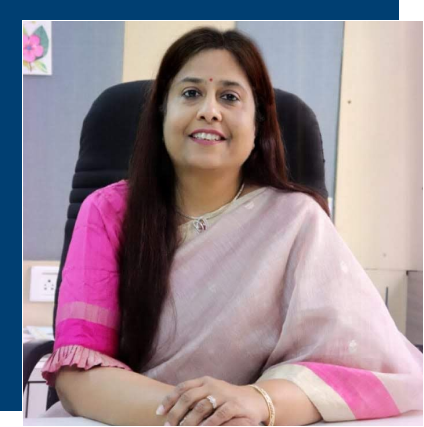
MRS. BHARTI BHAGWANI
"The mind is everything. What you think, you become."
Before I began writing this message, I found myself reflecting on a few verses from the Vedas. One phrase stood out to me—reminding me yet again of the timeless relevance of our ancient scriptures. Their wisdom continues to guide and inspire us, even today.
The Vedas speak of unity and interconnectedness in all that we do. This philosophy is echoed in the National Curriculum Framework (NCF) and the National Education Policy (NEP), which emphasize the holistic development of every child. Both documents highlight that every domain of a child's growth is interwoven, contributing to the making of a well-rounded individual.
As an educator, I have always believed in harnessing the power of the mind—intentionally, meaningfully, and purposefully. The ancient Indian concept of Smriti (memory) has long been a cornerstone of cognitive development. Unfortunately, it is often misinterpreted as rote learning. In truth, Smriti, when nurtured correctly, is far from mechanical memorization. Modern cognitive science validates this by affirming the crucial role of memory—both working and long-term—in enhancing comprehension and critical thinking.
While technology has undoubtedly brought convenience, it has also introduced a sedentary lifestyle and new sources of stress, which often inhibit cognitive growth. Among these, excessive screen time stands out as a major hindrance to mental development.
Today, more than ever, we must renew our focus on developing memory as a tool for learning. This involves more than just remembering facts—it includes deliberate practice, deep engagement, generating cues, making meaningful connections, and forming lasting associations. To nurture this kind of learning, we must move beyond rote methods and foster a classroom environment that is interactive, explorative, and engaging.
Teachers, parents, and students alike must commit to cultivating skills that enhance Smriti: critical thinking, creativity, problem-solving, and communication. These competencies not only support memory but also transform knowledge into practical wisdom.
We are all lifelong learners. To truly embrace this journey, we must strengthen our memories and shift from passive absorption to active application. Let us join hands to create learning experiences that are rich, joyful, and enduring.

